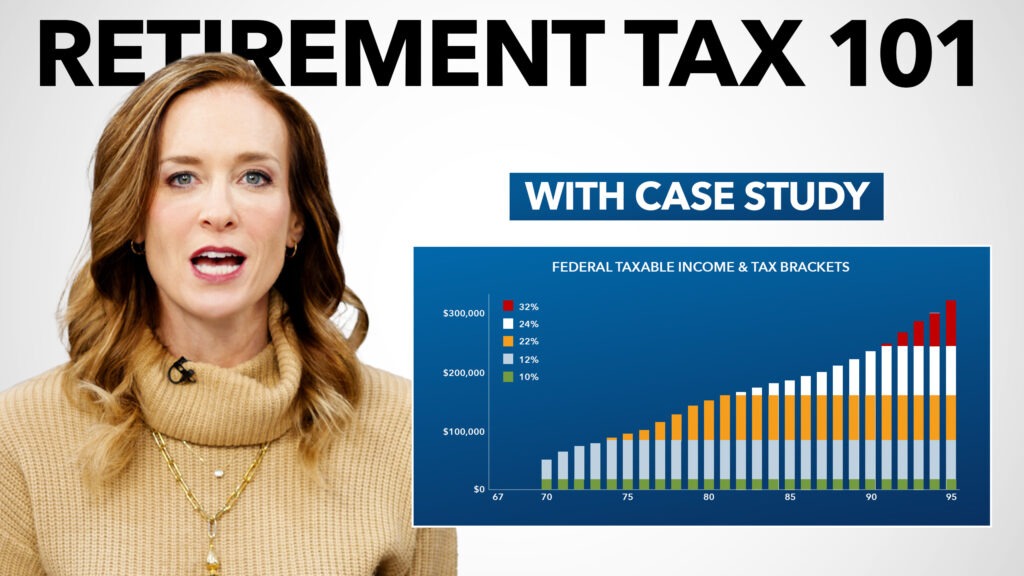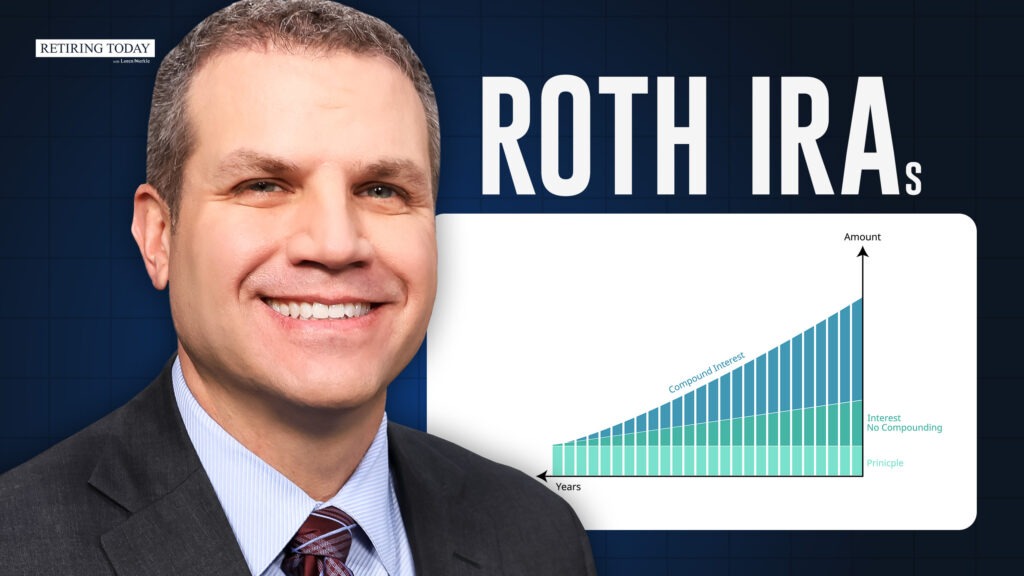In this episode of “Retiring Today,” experienced retirement planners Loren Merkle and Chawn Honkomp dive deep into making sense of annuities. With the backdrop of a volatile stock market and record-high interest rates, annuities have become a hot topic for those nearing retirement. This blog post will unravel the intricate details, benefits, and considerations surrounding annuities and explore the role of CDs in retirement investment planning.
–––––––––––––––––––––––––––––––––––––––––––––––––––––––––––––––––––––––––––––––––––––––––––––
What Are Annuities?
Annuity 101
To start, an annuity is a product offered by an insurance company that provides some level of guaranteed income. Loren explains that these guarantees can either span over the lifetime of an individual or a specific period, such as ten or fifteen years. The full faith and credit of the insurance company back these promises, providing a safety net for retirees looking to secure their financial future.
Types of Annuities: Fixed vs Variable
Breaking Down the Basics
Chawn delves into the two main types of annuities: fixed and variable. A fixed annuity works similarly to a CD (Certificate of Deposit), offering a set interest rate, which can either be a flat rate like 3% or one that tracks an index, ensuring more stable returns. Variable annuities, on the other hand, have more moving parts. They include investment options like mutual funds, with returns that can fluctuate based on market conditions.
The Role of Indexing
Loren expands on fixed indexed annuities, explaining how they use indexes like the S&P 500 to determine performance. This allows the principal investment to remain secure while potentially benefiting from market upswings without suffering from market downturns.
Annuities vs CDs: Which Should You Choose?
Comparing Guarantees and Returns
Both CDs and annuities have their place in financial planning, particularly in the current environment where interest rates are at 15-year highs. Loren highlights that while CDs are FDIC insured and backed by banks, annuities are backed by insurance companies. CD rates can fluctuate upon maturity, whereas fixed indexed annuities can lock in higher rates for longer periods.
Tax Implications
One significant consideration that Loren brings up is the tax treatment of gains from CDs versus annuities. With a CD, interest earned is taxable in the year it is received. Conversely, a fixed indexed annuity offers tax deferral, enabling the interest to compound over time and potentially leading to better long-term growth.
The Importance of Purpose and Fit in Investments
Loren and Chawn stress the crucial importance of understanding the purpose behind each investment. Decisions should be based on your specific financial phase and goals. Both CDs and annuities have their roles, but it’s essential to know why you are choosing one over the other.
Avoiding Pitfalls
Chawn warns against automatic renewals of “old annuities” once their contracts expire. It’s essential to look at the broader portfolio to determine if the same investment strategy still fits. This ensures that your financial plan evolves with your life stages and goals.
Key Questions to Ask About Annuities
Before investing in an annuity, Loren suggests asking several key questions:
– What is the purpose of this annuity in my retirement plan?
– What are the surrender charges and periods?
– Are there withdrawal options if I need access to the funds?
By understanding these aspects, you can make informed decisions tailored to your needs.
The Comprehensive Retirement Plan
One of the primary takeaways from this episode is the importance of having a comprehensive retirement plan. Loren explains that their retirement planning includes multiple pillars like income, tax, health care, and investments, ensuring that all aspects of financial health are covered.
Conclusion
Annuities can be a valuable tool in securing financial stability during retirement, especially in a fluctuating market. Understanding the different types available, their tax implications, and the purpose they serve in your overall retirement plan is vital. By asking the right questions and staying informed, you can navigate your retirement journey with confidence and ease.
–––
We are an independent financial services firm helping individuals create retirement strategies using a variety of investment and insurance products to custom suit their needs and objectives. The content and examples shared are for informational purposes only and should not be construed as investment advice or serve as the sole basis for making financial decisions. Individuals are encouraged to consult with a qualified professional before making any decisions about their personal financial situation. Our firm is not permitted to offer legal advice. Investment Advisory Services offered through Elite Retirement Planning, LLC. Insurance Services offered through MRP Insurance, LLC.










